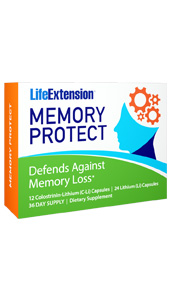BABY BOOMERS CAN NOW TREAT CONGESTIVE HEART FAILURE
Baby Boomers Get Life-Saving Heart Protection
If you are experiencing any heart problems and have concerns, there is an answer available NOW! Even those with congestive heart failure are experiencing improved energy and heart function. Congestive heart failure is one of the most devastating forms of cardiovascular disease. More than 5.8 million people in the US are affected by congestive heart failure. If you’re diagnosed with congestive heart failure today, you have a 50/50 chance of being dead within five years.CoQ10 Helps Prevent Heart Failure
CoQ10 has been shown to prevent underlying pathological disorders that produce heart failure. This includes reducing atherosclerosis risk factors, improving endothelial function, and protecting against heart damage. Those aren’t good odds. But researchers have determined that with the help of CoQ10, you can beat these odds. A recent international, multi-center study of patients with moderate-to-severe heart failure demonstrated, by the most conservative analysis, a 50% reduction in major cardiovascular events (strokes, heart attacks, etc.) and a 44% reduction in cardiovascular deaths, in response to CoQ10 supplementation.Combining CoQ10 and Selenium Reduces Cardiovascular Mortality
An important study out of Sweden has surprised researchers who found that combining CoQ10 with selenium can dramatically reduce cardiovascular mortality. This nutrient combination has also been found to improve heart function, improve quality of life,2,3 reduce the number of days a patient stays in the hospital, lower cardiovascular mortality risk by 49%, and even provide protection years after the subjects stopped taking the supplements.
Cardiovascular disease is the leading cause of death both globally and in the US. It kills more than 17 million people worldwide every year—more than all forms of cancer combined.
This nutrient combination has also been found to improve heart function, improve quality of life,2,3 reduce the number of days a patient stays in the hospital, lower cardiovascular mortality risk by 49%, and even provide protection years after the subjects stopped taking the supplements.
Cardiovascular disease is the leading cause of death both globally and in the US. It kills more than 17 million people worldwide every year—more than all forms of cancer combined.
 The exciting news is that supplementing with CoQ10 and selenium could be an important lifesaving combination for protecting against cardiovascular mortality.
The exciting news is that supplementing with CoQ10 and selenium could be an important lifesaving combination for protecting against cardiovascular mortality.
Reduce Cardiovascular Disease and Memory Loss
SOURCE: Life Extension® Magazine/Life Extension® FOUNDATION
For full article and references, go to Life Extension® Magazine: (Click Link) Cardiovascular Health and Memory Keys
To begin your journey to Optimal Heart Health, go to the BEST source for New Health and Medical Findings From Around the World! LIFE EXTENSION!
Get Life Extension® Super-Absorbable CoQ10
 And, then get Super Selenium Complex
And, then get Super Selenium Complex

For full article and references, go to Life Extension® Magazine: (Click Link) Cardiovascular Health and Memory Keys
To begin your journey to Optimal Brain Health, go to the BEST source for New Health and Medical Findings From Around the World! LIFE EXTENSION!
Get NEW! Life Extension® Memory Protect: Powerful Dual-Action Cognition & Memory Support 
In The News
April 2017

Vitamin K Found to Reduce Arterial Stiffness
A new study has gone a long way in helping to confirm the observed link between vitamin K intake and heart health.*
The research, published in the journal Thrombosis and Haemostasis, found that a daily 180 mcg dose of the MK-7 version of K2 reduced arterial stiffness in healthy postmenopausal women over the course of the three-year study. An association was also found with improved vascular elasticity.
Lead researcher Cees Vermeer of the Netherlands’ Maastricht University Holding remarked that the study is the first of its kind. “Our data demonstrated that a nutritional dose of vitamin K in fact improves cardiovascular outcomes,” he said.
Vermeer and his colleagues employed 244 subjects, roughly half of which were given MK-7 for three years, while the other half took a placebo. Advanced ultrasound technology was used to assess arterial thickness and stiffness. Women who had higher stiffness measures at baseline were seen to have improved carotid artery elasticity over time.
Vitamin K2 protects against soft tissue calcification, which is a factor involved in tissue “stiffening” that occurs with normal aging. This may be the first study to show a reversal of these clinical measures of arterial stiffness using this long-acting form of vitamin K2.
Editor’s Note: Cardiologist Dr. Dennis Goodman, director of Integrative Medicine at NYU Langone Medical Center, believes this study could potentially have a dramatic impact on the way we currently view prevention in regard to cardiovascular health. “Further clinical studies will be important to confirm these exciting findings,” he says.
FULL ARTICLE AND REFERENCES AT LIFE EXTENSION MAGAZINE CLICK HERE.
BABY BOOMERS: Slash Heart Concerns
Combining CoQ10 and Selenium Reduces Cardiovascular Mortality
 CoQ10 with selenium can dramatically reduce cardiovascular mortality.
This nutrient combination has also been found to improve heart function, improve quality of life, reduce the number of days a patient stays in the hospital, lower cardiovascular mortality risk by 49%, and even provide protection years after the subjects stopped taking the supplements.
Cardiovascular disease is the leading cause of death both globally and in the US. It kills more than 17 million people worldwide every year—more than all forms of cancer combined.
The exciting news is that supplementing with CoQ10 and selenium could be an important life-saving combination for protecting against cardiovascular mortality.
CoQ10 with selenium can dramatically reduce cardiovascular mortality.
This nutrient combination has also been found to improve heart function, improve quality of life, reduce the number of days a patient stays in the hospital, lower cardiovascular mortality risk by 49%, and even provide protection years after the subjects stopped taking the supplements.
Cardiovascular disease is the leading cause of death both globally and in the US. It kills more than 17 million people worldwide every year—more than all forms of cancer combined.
The exciting news is that supplementing with CoQ10 and selenium could be an important life-saving combination for protecting against cardiovascular mortality.
To begin your journey to Optimal Heart Health, go to the BEST source for New Health and Medical Findings From Around the World! LIFE EXTENSION!
Get Life Extension® Super-Absorbable CoQ10
 And, then get Super Selenium Complex
And, then get Super Selenium Complex

Magnesium Protects Against Stroke, Heart Disease and Diabetes By Dr. Mercola APRIL, 2017
If you’re looking for a way to decrease your risk of developing coronary heart disease, stroke and type 2 diabetes, new research has revealed profound results from starting a simple new habit: consuming an extra 100 milligrams (mg) of magnesium via your food on a daily basis.
Researchers at Zhejiang University and Zhengzhou University in China found that more than 1 million people across nine countries who consumed the most magnesium tested out with a 10 percent lower risk of coronary heart disease, a 12 percent lower stroke risk and a 26 percent lower risk of type 2 diabetes.
Regarding the new research, which was published in Biomed Central,1 lead study author Fudi Wang, Ph.D., explains:
“Low levels of magnesium in the body have been associated with a range of diseases, but no conclusive evidence has been put forward on the link between dietary magnesium and health risks.
Our meta-analysis provides the most up-to-date evidence supporting a link between the role of magnesium in food and reducing the risk of disease ... Our findings will be important for informing the public and policy makers on dietary guidelines to reduce magnesium deficiency-related health risks.”2
Wang said in a Medical Xpress news release3 that although current guidelines recommend that men take about 300 mg of magnesium a day, and women 270 mg per day, deficiencies in this mineral are still common, affecting anywhere between 1.5 percent to 15 percent of the population.
The researchers hope this new information serves to not just encourage people to make sure they’re getting adequate magnesium, but to prompt policy makers to change dietary guidelines, which could diminish the number of magnesium deficiency-related diseases.
If you’re looking for a way to decrease your risk of developing coronary heart disease, stroke and type 2 diabetes, new research has revealed profound results from starting a simple new habit: consuming an extra 100 milligrams (mg) of magnesium via your food on a daily basis.
Researchers at Zhejiang University and Zhengzhou University in China found that more than 1 million people across nine countries who consumed the most magnesium tested out with a 10 percent lower risk of coronary heart disease, a 12 percent lower stroke risk and a 26 percent lower risk of type 2 diabetes.
Regarding the new research, which was published in Biomed Central,1 lead study author Fudi Wang, Ph.D., explains:
“Low levels of magnesium in the body have been associated with a range of diseases, but no conclusive evidence has been put forward on the link between dietary magnesium and health risks.
Our meta-analysis provides the most up-to-date evidence supporting a link between the role of magnesium in food and reducing the risk of disease ... Our findings will be important for informing the public and policy makers on dietary guidelines to reduce magnesium deficiency-related health risks.”2
Wang said in a Medical Xpress news release3 that although current guidelines recommend that men take about 300 mg of magnesium a day, and women 270 mg per day, deficiencies in this mineral are still common, affecting anywhere between 1.5 percent to 15 percent of the population.
The researchers hope this new information serves to not just encourage people to make sure they’re getting adequate magnesium, but to prompt policy makers to change dietary guidelines, which could diminish the number of magnesium deficiency-related diseases.
Heart Issues Linked to Low Magnesium, but Science Takes a ‘Wrong Turn’
In 2013, the upshot of a “groundbreaking” review covering what was known about cardiovascular disease from as early as 1937 found that low magnesium levels —not high cholesterol or consumption of too much saturated fat —are the leading cause of many aspects of heart disease.
The 10-year review, conducted by research scientist and author Andrea Rosanoff, Ph.D., was based on the earlier research of Dr. Mildred Seelig, who studied the relationship between magnesium and cardiovascular disease for more than 40 years. Seelig noted:
“These numerous studies have found low magnesium to be associated with all known cardiovascular risk factors, such as cholesterol and high blood pressure, arterial plaque build-up (atherogenesis), hardening of the arteries and the calcification of soft tissues.
This means we have been chasing our tails all of these years going after cholesterol and the high saturated-fat diet, when the true culprit was and still is low magnesium.”
As early as 1957, Rosanoff says, it was very clear that low magnesium was “strongly, convincingly, a cause of atherogenesis and the calcification of soft tissues. But this research was widely and immediately ignored as cholesterol and the high saturated-fat diet became the culprits to fight.”
The “wrong turn” scientists took when the research was so clear, Rosanoff asserts, created a trajectory in the way heart disease and other cardiovascular issues have been dealt with across the board. This had resulted in entire populations failing to balance their magnesium intake with their calcium intake, and it’s getting worse.
Studies continue to show that when calcium and magnesium intake aren’t on an even keel, Rosanoff asserts, the risk of heart disease increases.
In 2013, the upshot of a “groundbreaking” review covering what was known about cardiovascular disease from as early as 1937 found that low magnesium levels —not high cholesterol or consumption of too much saturated fat —are the leading cause of many aspects of heart disease.
The 10-year review, conducted by research scientist and author Andrea Rosanoff, Ph.D., was based on the earlier research of Dr. Mildred Seelig, who studied the relationship between magnesium and cardiovascular disease for more than 40 years. Seelig noted:
“These numerous studies have found low magnesium to be associated with all known cardiovascular risk factors, such as cholesterol and high blood pressure, arterial plaque build-up (atherogenesis), hardening of the arteries and the calcification of soft tissues.
This means we have been chasing our tails all of these years going after cholesterol and the high saturated-fat diet, when the true culprit was and still is low magnesium.”
As early as 1957, Rosanoff says, it was very clear that low magnesium was “strongly, convincingly, a cause of atherogenesis and the calcification of soft tissues. But this research was widely and immediately ignored as cholesterol and the high saturated-fat diet became the culprits to fight.”
The “wrong turn” scientists took when the research was so clear, Rosanoff asserts, created a trajectory in the way heart disease and other cardiovascular issues have been dealt with across the board. This had resulted in entire populations failing to balance their magnesium intake with their calcium intake, and it’s getting worse.
Studies continue to show that when calcium and magnesium intake aren’t on an even keel, Rosanoff asserts, the risk of heart disease increases.
Evidence ‘Much Too Compelling to Ignore’
Medical and naturopathic doctor Carolyn Dean, a member of the Nutritional Magnesium Association’s Medical Advisory Board, asserts that it’s obvious that cholesterol isn’t the cause because statins have been the answer doctors have turned to for their patients for two decades, but heart disease is still the No. 1 killer in America.
Although there are many other medical conditions that can be attributed to low magnesium levels, Dean listed six of the most debilitating:
Hypertension (high blood pressure)
Type 2 diabetes
Problems optimizing cholesterol levels
Heart arrhythmia
Angina
Heart attack
Celebrity dietician Ashley Koff, also a member of Prevention magazine’s advisory board, noted that magnesium has rightfully received increased attention as a critical nutrient in relation to optimal health. Further, she believes that correcting levels of magnesium intake recommendations is one of the most critical health issues today.
“There are many challenges to achieving adequate intake of magnesium in the modern diet; thus I consider magnesium part of the essential nutrients to supplement daily and — in light of this review, specifically — crucial to preventing cardiovascular disease across patient populations.”5
In one study, scientists found in a March 2017 study that hypertension was inversely associated with magnesium in children living in higher altitude areas of Argentina.6
Another three-month, randomized, double-blind, placebo-controlled study revealed that magnesium supplementation improved the metabolic status of obese and pre-diabetic patients with mild cases of chronic kidney disease.7
Medical and naturopathic doctor Carolyn Dean, a member of the Nutritional Magnesium Association’s Medical Advisory Board, asserts that it’s obvious that cholesterol isn’t the cause because statins have been the answer doctors have turned to for their patients for two decades, but heart disease is still the No. 1 killer in America.
Although there are many other medical conditions that can be attributed to low magnesium levels, Dean listed six of the most debilitating:
Hypertension (high blood pressure)
|
Type 2 diabetes
|
Problems optimizing cholesterol levels
|
Heart arrhythmia
|
Angina
|
Heart attack
|
Celebrity dietician Ashley Koff, also a member of Prevention magazine’s advisory board, noted that magnesium has rightfully received increased attention as a critical nutrient in relation to optimal health. Further, she believes that correcting levels of magnesium intake recommendations is one of the most critical health issues today.
“There are many challenges to achieving adequate intake of magnesium in the modern diet; thus I consider magnesium part of the essential nutrients to supplement daily and — in light of this review, specifically — crucial to preventing cardiovascular disease across patient populations.”5
In one study, scientists found in a March 2017 study that hypertension was inversely associated with magnesium in children living in higher altitude areas of Argentina.6
Another three-month, randomized, double-blind, placebo-controlled study revealed that magnesium supplementation improved the metabolic status of obese and pre-diabetic patients with mild cases of chronic kidney disease.7
What Makes Magnesium Intake so Important?
Dr. Mehmet Oz, host of the nationally syndicated and Emmy Award-winning Dr. Oz Show, as well as vice-chair and professor of surgery at Columbia University, says magnesium is essential for helping regulate metabolism, and it helps lower blood pressure and dilate arteries.
Additionally, Oz asserts, arguably 3 of every 4 people in the U.S. fail to get the amount of magnesium they need, which means they’re magnesium deficient.
While the World Health Organization (WHO) recommends 400 mg to 500 mg of calcium, Dean advises a 1-to-1 balance with magnesium, with calcium consumed through your diet and adding vitamin D doses along with vitamin K2, “and all of these measures combined will protect your bones as well as your heart.”
Wang’s research analyzed data from 40 epidemiological studies from 1999 to 2016, looking at the associations between dietary magnesium and different diseases. All the studies used self-reporting food frequency questionnaires from 24-hour dietary recall to determine magnesium levels, and they varied widely.
Biological, lifestyle, gender and study location factors were also taken into account. Afterward, he explained, the researchers performed a dose-response analysis for the effect of each 100 mg-per-day increase of dietary magnesium.
The conclusion of the study reinforced the study conclusion that increased consumption of magnesium-rich foods could be beneficial for overall health. Wang’s press release noted:
“Magnesium is vital for human health and normal biological functions including glucose metabolism, protein production and synthesis of nucleic acids such as DNA. Diet is the main source of magnesium as the element can be found in foods such as spices, nuts, beans, cocoa … and green leafy vegetables.”
Dr. Mehmet Oz, host of the nationally syndicated and Emmy Award-winning Dr. Oz Show, as well as vice-chair and professor of surgery at Columbia University, says magnesium is essential for helping regulate metabolism, and it helps lower blood pressure and dilate arteries.
Additionally, Oz asserts, arguably 3 of every 4 people in the U.S. fail to get the amount of magnesium they need, which means they’re magnesium deficient.
While the World Health Organization (WHO) recommends 400 mg to 500 mg of calcium, Dean advises a 1-to-1 balance with magnesium, with calcium consumed through your diet and adding vitamin D doses along with vitamin K2, “and all of these measures combined will protect your bones as well as your heart.”
Wang’s research analyzed data from 40 epidemiological studies from 1999 to 2016, looking at the associations between dietary magnesium and different diseases. All the studies used self-reporting food frequency questionnaires from 24-hour dietary recall to determine magnesium levels, and they varied widely.
Biological, lifestyle, gender and study location factors were also taken into account. Afterward, he explained, the researchers performed a dose-response analysis for the effect of each 100 mg-per-day increase of dietary magnesium.
The conclusion of the study reinforced the study conclusion that increased consumption of magnesium-rich foods could be beneficial for overall health. Wang’s press release noted:
“Magnesium is vital for human health and normal biological functions including glucose metabolism, protein production and synthesis of nucleic acids such as DNA. Diet is the main source of magnesium as the element can be found in foods such as spices, nuts, beans, cocoa … and green leafy vegetables.”
Magnesium-Rich Foods: How to Naturally Combat Heart-Related Disease
Magnesium is the fourth-most abundant mineral in your body, and more than 300 enzymes rely on it to carry out normal muscle and nerve function related to energy, relaxed blood vessels, good teeth and bone formation and the regulation of insulin and blood sugar levels.8
Magnesium helps your body detox from toxins and helps synthesize glutathione. It also plays a vital role in your body’s mitochondrial performance, and in improving your energy level. One very positive aspect of this mineral is that when your body has taken in the optimal amount, it simply flushes the rest away.
Dean, in her book “The Magnesium Miracle,” recommends taking 200 mg per day, but parsed out in two or three doses, as it can have a laxative effect. Other scientists recommend taking almost twice that amount, but age and sex are factors to consider. Foods containing magnesium include:
Spinach
Collard greens
Swiss chard
Turnip greens
Broccoli
Kale
Bok choy
Romaine lettuce
Raw cacao
Nuts and seeds
Fruits and berries
Fatty fish (wild-caught Alaskan salmon), seeds, including pumpkin seeds and sunflower seeds, nuts, including cashews, almonds and Brazil nuts, and herbs and spices, including chives, coriander, cumin, parsley, mustard seeds, fennel, basil and cloves, also contain high amounts of magnesium, so as you can see, it’s easy to include it in your diet.
Magnesium is the fourth-most abundant mineral in your body, and more than 300 enzymes rely on it to carry out normal muscle and nerve function related to energy, relaxed blood vessels, good teeth and bone formation and the regulation of insulin and blood sugar levels.8
Magnesium helps your body detox from toxins and helps synthesize glutathione. It also plays a vital role in your body’s mitochondrial performance, and in improving your energy level. One very positive aspect of this mineral is that when your body has taken in the optimal amount, it simply flushes the rest away.
Dean, in her book “The Magnesium Miracle,” recommends taking 200 mg per day, but parsed out in two or three doses, as it can have a laxative effect. Other scientists recommend taking almost twice that amount, but age and sex are factors to consider. Foods containing magnesium include:
Spinach
|
Collard greens
|
Swiss chard
|
Turnip greens
| |
Broccoli
|
Kale
|
Bok choy
|
Romaine lettuce
| |
Raw cacao
|
Nuts and seeds
|
Fruits and berries
|
Fatty fish (wild-caught Alaskan salmon), seeds, including pumpkin seeds and sunflower seeds, nuts, including cashews, almonds and Brazil nuts, and herbs and spices, including chives, coriander, cumin, parsley, mustard seeds, fennel, basil and cloves, also contain high amounts of magnesium, so as you can see, it’s easy to include it in your diet.
Magnesium (Citrate)
Many Americans do not obtain adequate amounts of magnesium in their diets.1
Magnesium is one of the body’s most important minerals. It is required as a cofactor in hundreds of enzymatic processes within cells.2 It helps maintain normal muscle and nerve function, keeps heart rhythm steady, promotes healthy cardiovascular function, supports a healthy immune system, and keeps bones strong. Magnesium also helps maintain blood sugar and blood pressure levels already within normal range, and it is known to be involved in energy metabolism and protein synthesis.
http://bit.ly/LEFHFMAG
Slashing Cardiovascular Mortality

To begin your journey to Optimal Heart Health, go to the BEST source for New Health and Medical Findings From Around the World! LIFE EXTENSION!
Get Life Extension® Super-Absorbable CoQ10
 And, then get Super Selenium Complex
And, then get Super Selenium Complex

Quality of Life
 The goal in extending lifespan is to not just live longer, but to live better. In fact, most aging individuals will tell you that their quality of life is more important than simply extending lifespan.
The goal in extending lifespan is to not just live longer, but to live better. In fact, most aging individuals will tell you that their quality of life is more important than simply extending lifespan.Long-Term Benefits
A further analysis from the initial Swedish study reveals perhaps the most surprising finding from this major study which was that CoQ10 and selenium were still effective at reducing cardiovascular deaths 10 years after the start of the study. This means that CoQ10 and selenium continued to extend their life-saving benefits years after the participants stopped taking the supplements! (For balance of article, click MORE below.)Article: Reprint from October, 2016 LIFE EXTENSION MAGAZINE

To begin your journey to Optimal Heart Health, go to the BEST source for New Health and Medical Findings From Around the World! LIFE EXTENSION!
Get Life Extension® Super-Absorbable CoQ10
And, then get Super Selenium Complex
FHF
PREFERRED AFFILIATE SITES:




No comments:
Post a Comment